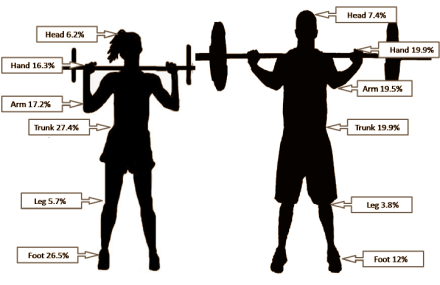|
Definition: "An ergogenic aid is any substance or phenomenon that enhances performance "
|
|
||||||||
20.08.2017 |
|
|
Steroids users nine times more likely to rupture tendons than natural athletes
Strength athletes who use anabolic steroids rupture their tendons a whopping 9 times more often than strength athletes who stay clean, write researchers at McLean Hospital, Boston in the American Journal of Sports Medicine. Interestingly, according to the study, most tendons are not ruptured in the gym but outside it.
Study
Results
The chance of rupturing a tendon is 9 times bigger among pharmacologically supported bodybuilders than among bodybuilders who stay away from chemical muscle strengtheners.
Secondly, eighty percent of the injuries occurred while they were doing another sport or at work. So most of the unlucky ones who ruptured a tendon were not training in the gym when the injury happened.
The amount of steroids the users dosed themselves up with varied a lot. The study was too small to be able to detect a relationship between the dosages and the risk of injury.
Conclusion
"Our findings provide persuasive evidence that the risk of tendon rupture is strikingly higher among anabolic-androgenic steroid users than among equally experienced weightlifters who have not used these drugs."
"Perhaps most notably, anabolic-androgenic steroid users frequently reported a history of upper body tendon rupture, but we found no cases of upper body tendon rupture among 54 otherwise similar non-using weightlifters."
"These findings would suggest that if a muscular man presents with a ruptured tendon, perhaps especially an upper body tendon, the clinician should strongly suspect anabolic-androgenic steroid use as a contributing factor."
"Given the high prevalence of anabolic-androgenic steroid use and dependence in the United States and other Western countries, it appears that anabolic-androgenic steroid-associated tendon rupture represents a significant public health problem, creating substantial costs in medical care, lost productivity, and reduced quality of life."
Source:
More:
Archives:
|
|
||||||||||||||||




